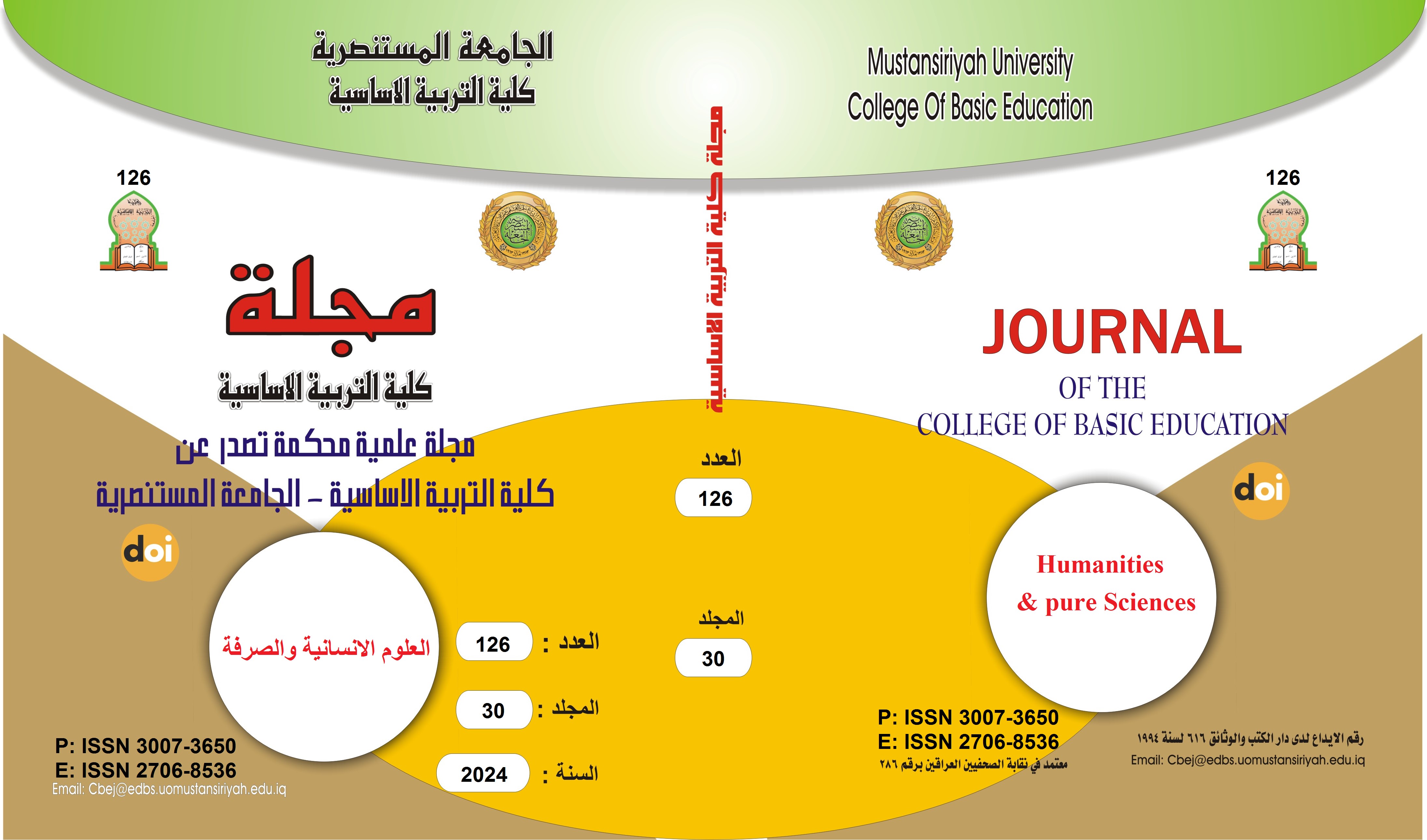The effect of the triple bridging strategy on the flexible thinking skills of second-year intermediate students in mathematics
Main Article Content
Abstract
The research aimed to identify the three-way bridging strategy in flexible thinking skills among second-year intermediate students. The experimental approach was followed to achieve the goal of the research. The research sample was chosen randomly and consisted of (61) second-year intermediate students from (Al-Maliki Secondary School for Boys) for the year Academic year (2023-2024), one of which was experimental, studied according to the triple bridging strategy, with (31) students, and the other was control, taught according to the regular method, with (30) students. The two groups were rewarded on the variables (chronological age in months, intelligence, previous achievement in mathematics, and the test) Previous knowledge in mathematics), and the research tool was built (testing flexible thinking skills in mathematics). As for the test of flexible thinking skills, it included (18) essay paragraphs distributed among the flexible thinking skills, which are (automatic, adaptive, and redefinition). With six items for each skill, the validity of the test was verified and the reliability coefficient was acceptable, as the Alpha-Cronbach equation was used to find it. For the test of flexible thinking skills, it reached (0.91). After the end of the experiment, the test of flexible thinking skills was applied to both groups (experimental and control). Using appropriate statistical methods, the results showed that there was a statistically significant difference between the average scores of the two groups (experimental and control) in the flexible thinking skills test, in favor of the experimental group. In light of the research results, a number of conclusions, recommendations and proposals were reached .
Article Details

This work is licensed under a Creative Commons Attribution-ShareAlike 4.0 International License.
